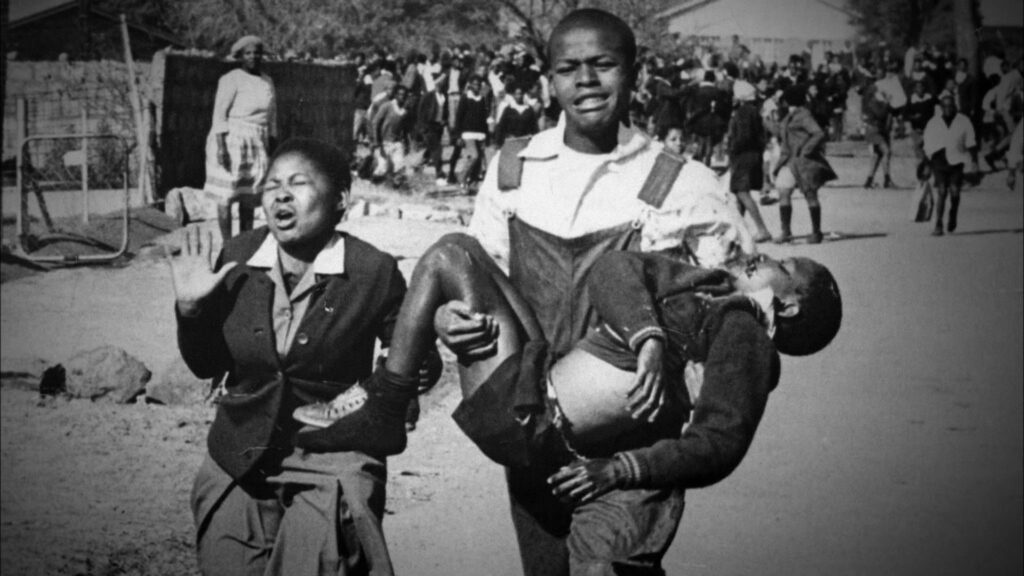
Damon Galgut recently spoke at a writer’s festival in Wales UK and said he wrote The Promise from the point of view of the white characters. He wanted the reader to feel uncomfortable. He suceeded with me. I found the characters selfish, entitled and cruel. The plot takes you to four different funerals over time within one Afrikaaner family in South Africa.
The four chapters provide recounts of the deaths of Rachel (the mother), Mannie (the father), Astrid (daughter) and (son) Anton and their funerals. The family are Boers, descendants of the Voortrekkers, members of the Dutch Reformed Church and cleave to their tradition and superiority. The dialogue of the family members; their relationship with their pastor called a dominee; the descriptions of the white houses and black townships exposes the reader to the uncomfortable truth— there goes that word again— of racial superiority.
The only departure from this thinking is the mother Rachel who reverts to her Jewish faith just before her death, and the youngest daughter Amor who hears the promise before her mother dies.
The promise Mannie (Pa-Hermann Albertus Swart) makes to Rachel is that some land and a house near the main house is to be given to the maid. Salome, the family maid has cared for the family for years and during Rachel’s slow death she washed, fed, and loved her through painful cancer.
Mannie ignores the request, and the disintegration of the family begins. The eldest son Anton argues with his father at his mother’s wake about the broken promise and then leaves; he never reconciles. Anton goes AWOL from the army as he has terrible guilt about killing a young black woman who picked up a stone to throw at him. He begins a wandering life searching for some peace, starts to write a novel, becomes an alcoholic and ultimately suicides—another funeral.
Amor the youngest child who heard the promise as a 13-year-old never forgets and finally after 30 years being the last remaining sibling and in charge of the inheritance, she hands the land over to Salome. Now a very old woman Salome has a drug addicted son who was once a playmate of Amor; a man destroyed by the regime.
There are parallels with Australia and my community. Though seldom mentioned there are well documented massacres close to our town. Seven indigenous men shot at Mt Dispersion on the Murray and more than 30 people killed at Rufus River. Most of us know that there are far more deaths not recorded. Indigenous people will tell you of the many graves outside towns never spoken about and there remains amongst my white community a common thread of superiority.
Most of the Swart family in the book dismiss their black servants as lazy, drunks, and troublemakers and sadly many people I know use the same rhetoric for indigenous Australians. It seems the adjectives have been around for a long time; the same descriptors were used for my Irish ancestors who arrived in the 1850s. They faced oppression and judgements and advertisements with a not-so-secret NINA in the bottom corner of the page—No Irish Need Apply.
On a personal level I have witnessed the impact of a broken promise on the second son of a local farming family. Despite twenty-five years of living and working with his family, sharing the purchase of equipment, negotiating share farming agreements, being part of sporting teams and community events and importantly working the family farm without any wages—a promise was broken.
‘The two of you (his two eldest boys) can take over this farm’ his father had said openly. Later the father struggled with dementia and negotiations were done without consultation, the promise forgotten. Like the Swarts the impact of this broken promise has been tragic. The emotional damage of having twenty-five years of your life washed away without explanation has created for the second son on-going mental health issues, and the fall out for the rest of the family has broken links forever.Promises, land, and inheritance issues break families apart.
But there is room for hope—families can talk, truth telling can bring peace, apologies give victims some comfort. Amor (youngest daughter), in the story does finally deliver the family house and her own inheritance to Salome (family maid).
I believe that Galgut’s pithy writing about the lives and the deaths of one family in Pretoria SA provides a searing insight into the destructive power of people who believe they are superior and can break promises. It is a book you will not forget quickly.
Damon Galgut has written nine books before ‘The Promise’ and has been shortlisted for the Booker Prize for two of his books ‘The Good Doctor’ and ‘ In a Strange Room’
‘The Promise’ was published by Random House UK in April 12, 2022.
Photograph by Sam Nzima from the June 1976 Soweto Uprising taken from and article by Mandis Ndlovu, Opinion Mail and Guardian